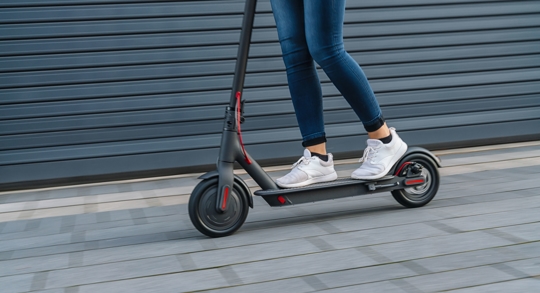With Electric Power Comes Great Responsibility
On August 2, 2020, operating electric scooters and bicycles on some streets and highways in New York State became legal. In April 2020, only e-bikes were allowed on certain streets and highways, but now the state opened its arms to e-scooters. This recent law can potentially help thousands of people legally get around town without using their vehicles.
You may have seen an increased number of people transitioning to e-bikes and e-scooters to avoid waiting in hours of traffic, save money and help the environment. These affordable and effective means of transportation are becoming the new norm in many cities such as New York City.
As a reminder, New York’s definitions of legal e-bikes and e-scooters are as follows:
Electric scooter: A type of device with handlebars, a floorboard or a seat, and an electric motor that can be powered by the electric motor and/or human power. It has a maximum speed of 20 miles per hour on a paved level surface when powered solely by the electric motor.
Bicycle with electric assist (e-bike): Bicycles with an electric motor and operable pedals. An e-bike doesn’t qualify for registration like a motorcycle, limited use motorcycle, moped or ATV and doesn’t have the same equipment.
- Class 1 e-bike: Has an electric motor that provides assistance only when the person is pedaling, and reaches a speed of 20 miles per hour.
- Class 2 e-bike: Has an electric motor that may be used exclusively to propel such bicycle, reaches a speed of 20 miles per hour.
- Class 3 e-bike: Solely within a city having a population of one million or more, it may be used exclusively to propel such bicycle, reaches a speed of 25 miles per hour.
If you decide to use an e-bike or e-scooter, keep the following rules in mind:
- You can operate these devices on highways with a posted speed limit of 30 MPH or less
- Municipalities can further regulate the time, place and manner of operation of these devices
- You cannot operate these devices on a sidewalk except as authorized by local law or ordinance
An effective way to avoid a traffic ticket is to consult a NY traffic ticket attorney to get your questions answered by a qualified legal professional. Therefore, we urge you to contact (212) 235-1525 today!

